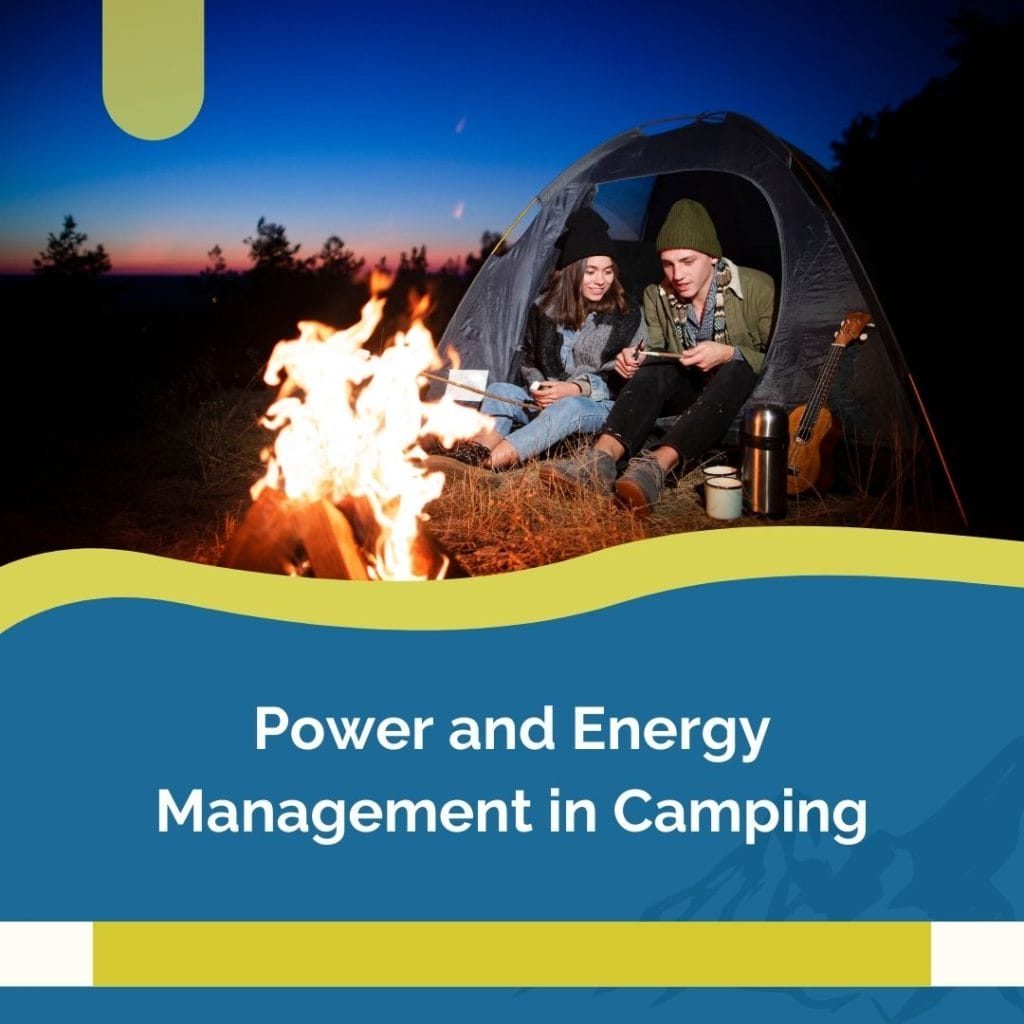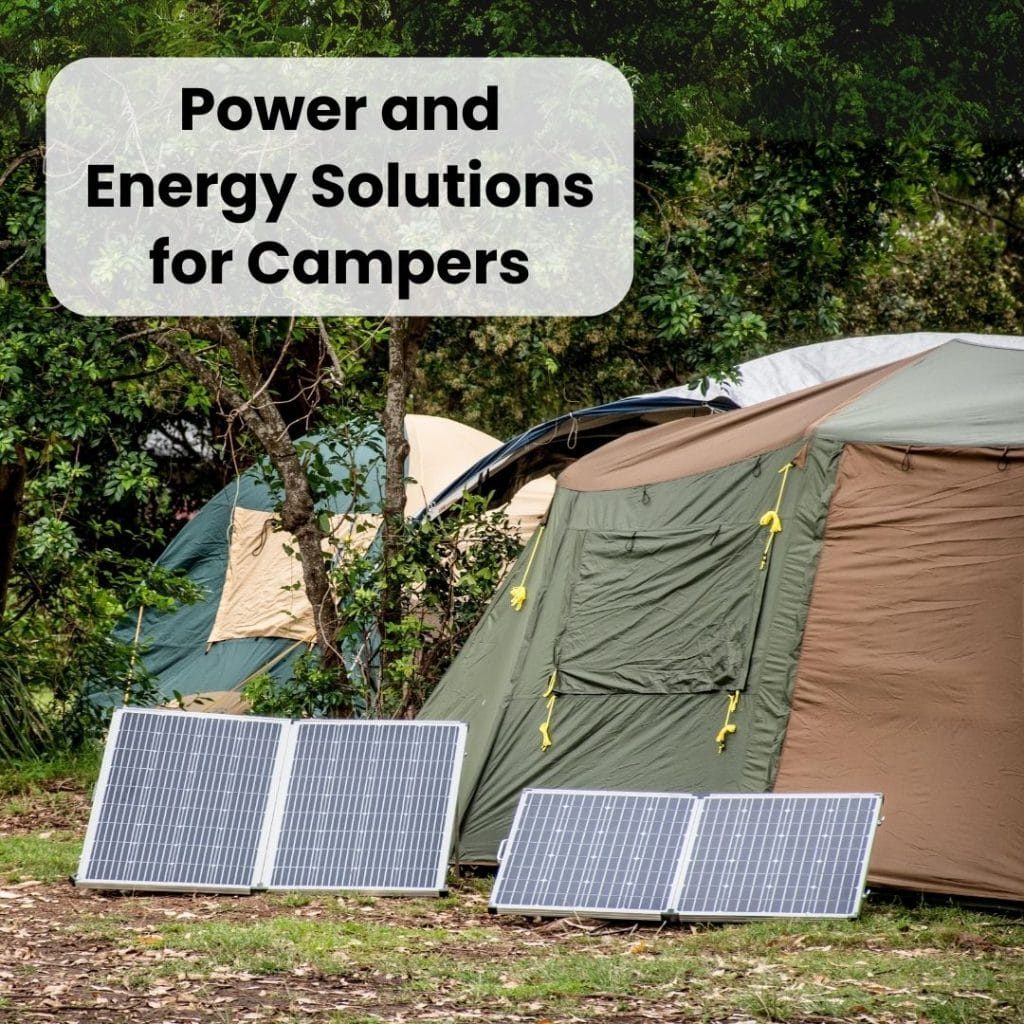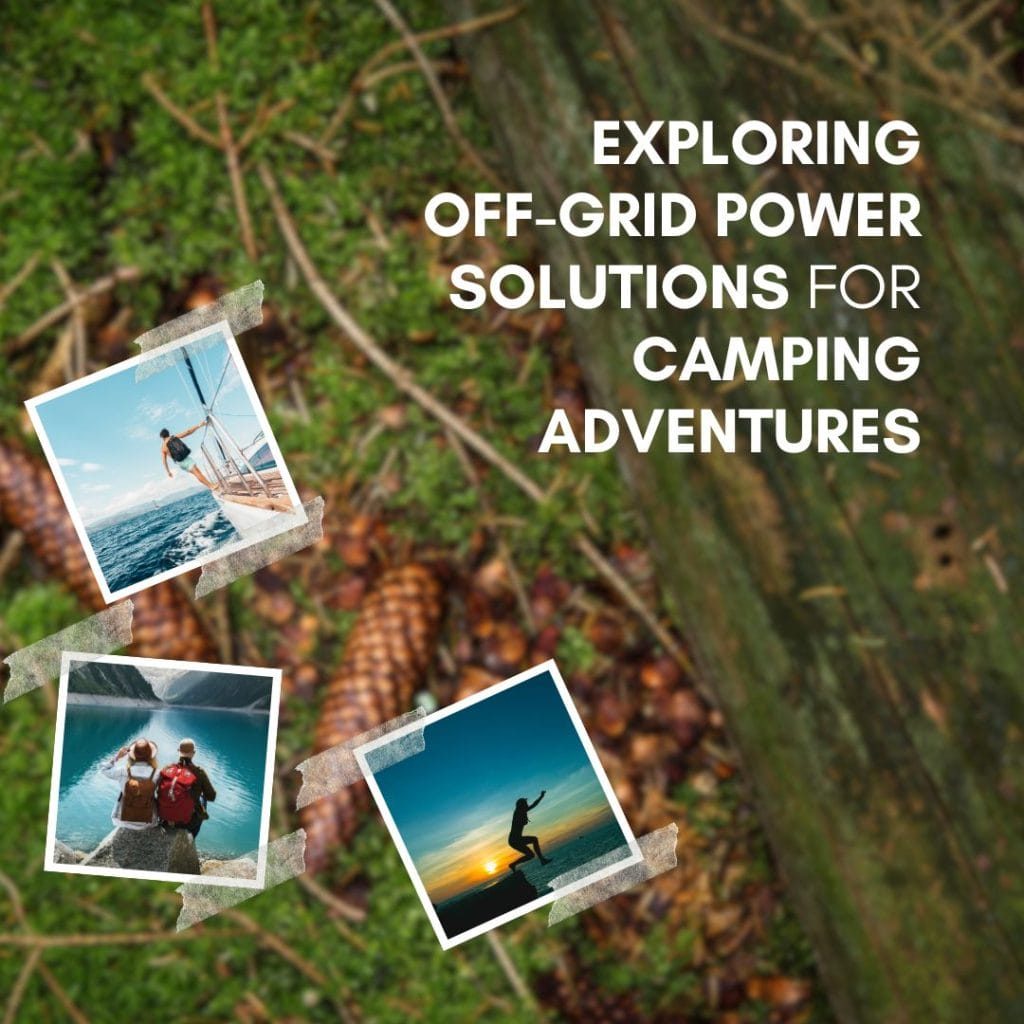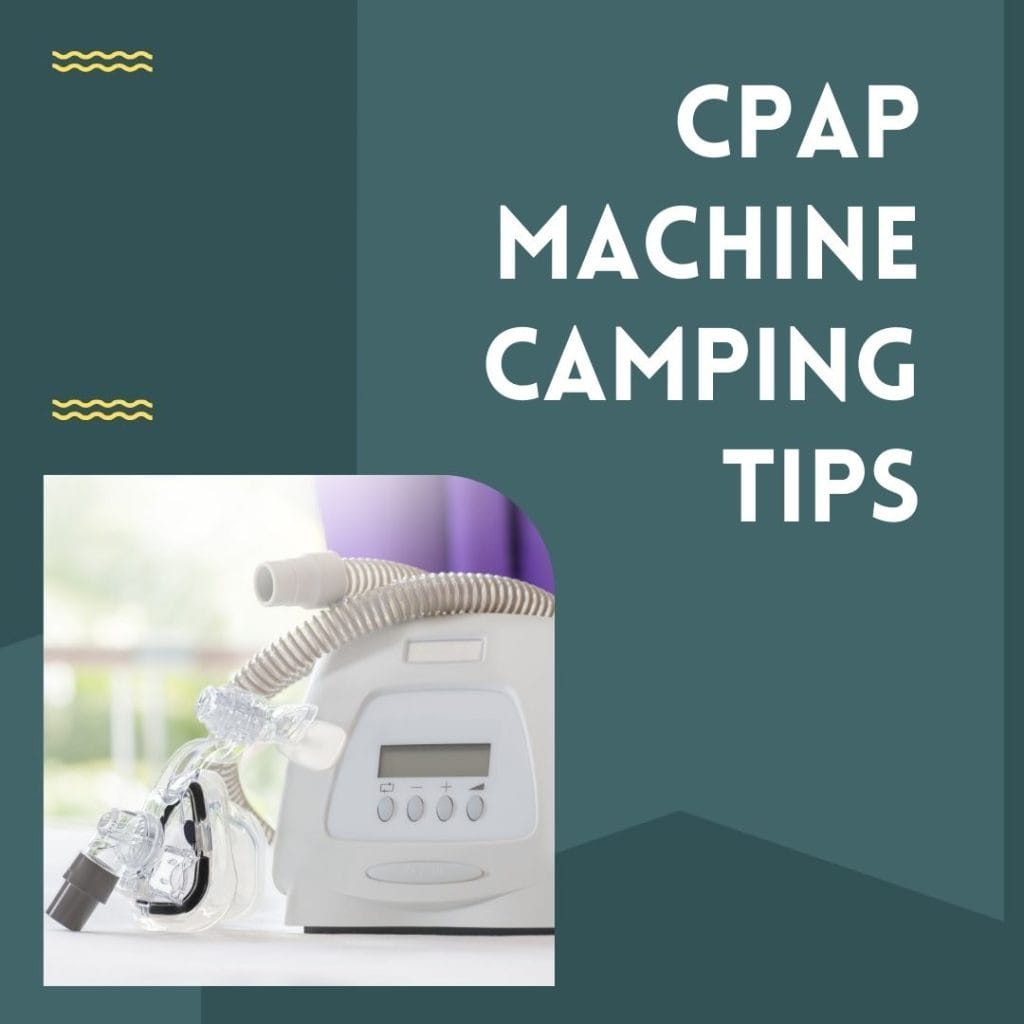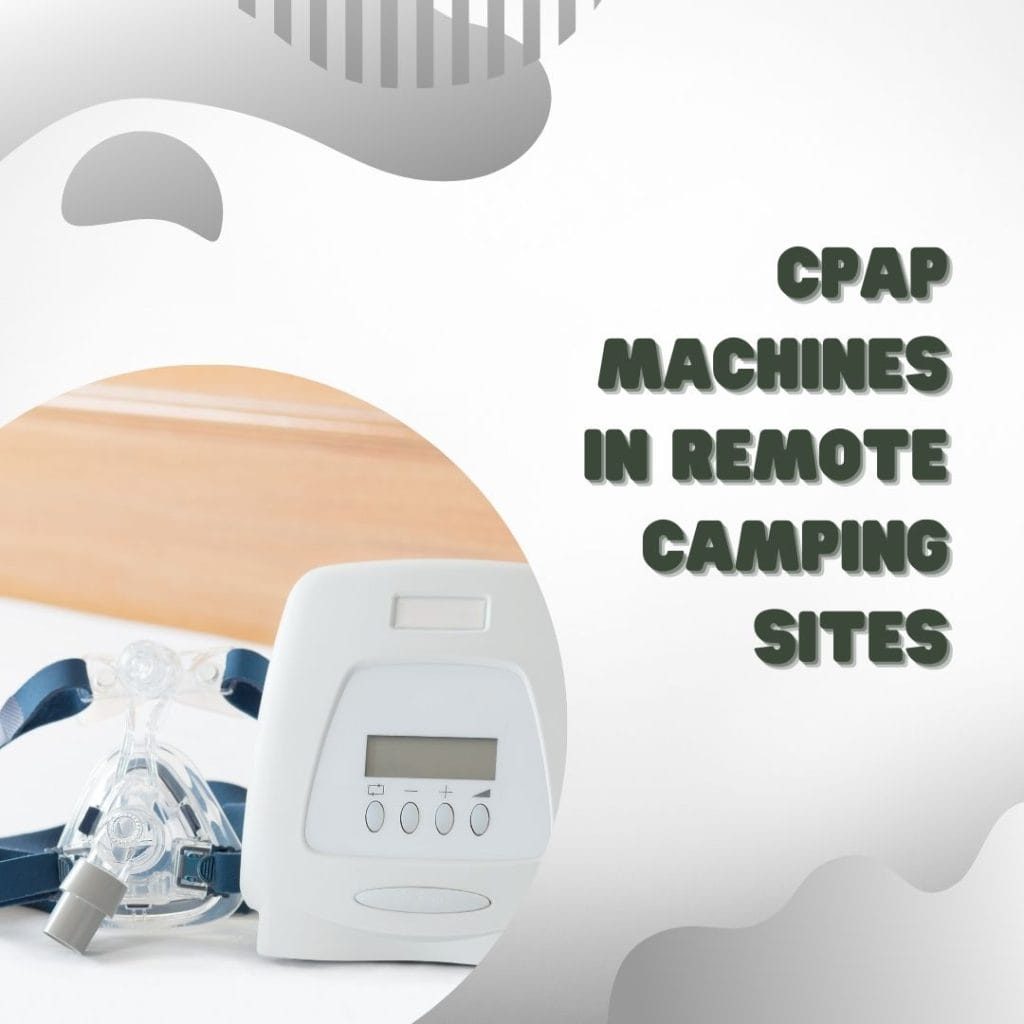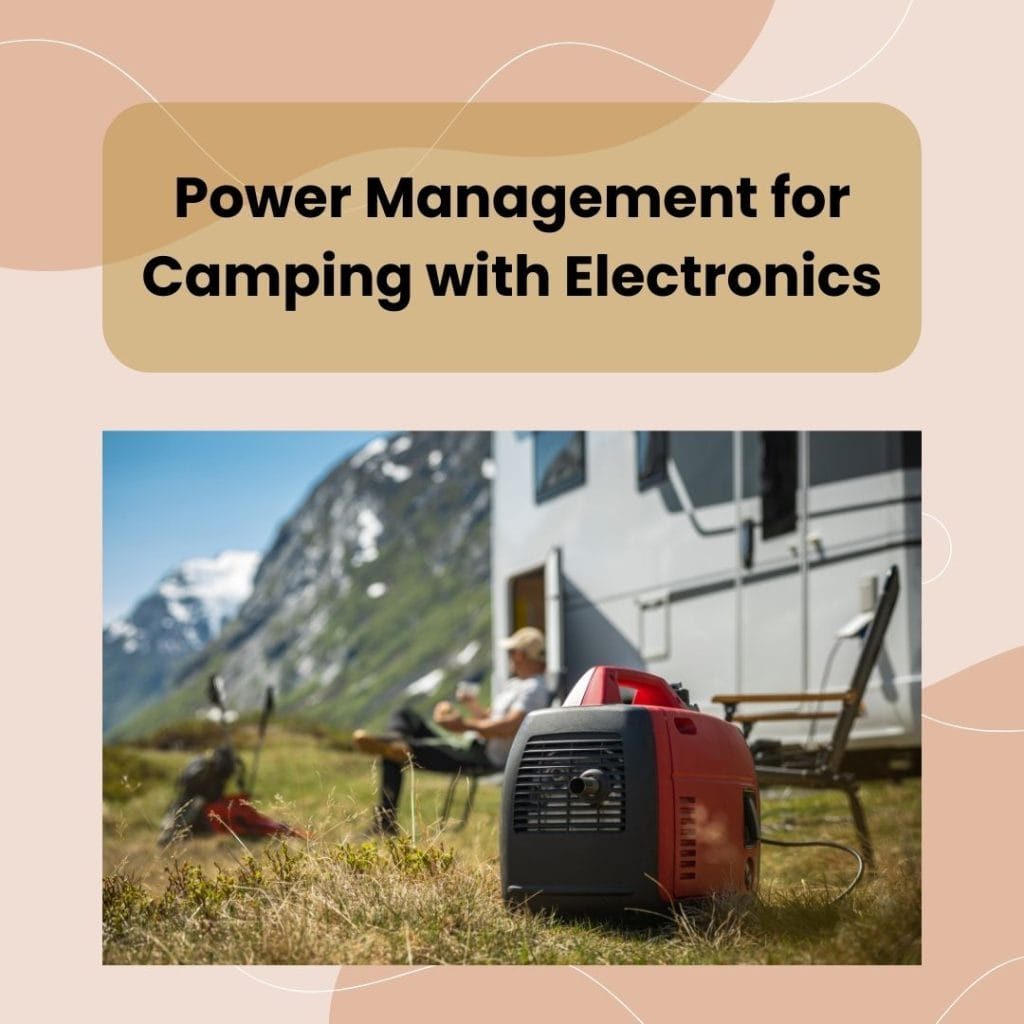Harnessing the energy of the sun using solar power inverters for camping is an efficient and sustainable approach to outdoor living. These devices convert the sun’s energy into usable power, creating a self-sufficient energy source that adds convenience and reliability to your camping experience. Embrace the beauty of nature while staying powered up with solar power inverters during your camping trips.
Utilizing Solar Power Inverters for Efficient Camping Trips
For many campers, the allure of embarking on an RV adventure and disconnecting from the usual hustle and bustle is irresistible. However, this metaphorical disconnection can often lead to a literal one – being cut off from a reliable power source.
This is where an RV inverter generator for camping trips becomes an invaluable asset. It offers a steady flow of power, ensuring your camping or hunting trip isn’t hindered by a lack of electrical facilities. Furthermore, these units prove to be highly useful in storm preparedness or during severe public safety power shutoffs.
Comprehending the workings and advantages of camper inverter generators can aid in determining their usefulness for your camping equipment. By investing in solar power inverters for camping, you can enhance the efficiency and comfort of your off-the-grid adventures.
Camper Inverter Generator 101
When it comes to comparing inverter generators with traditional generators, understanding the basics is essential. Both are portable power sources, but where they differ lies in the type of power they offer and their technology.
An inverter generator takes direct current power (DC) and converts it into a cleaner form of alternating current (AC) power. This method results in an output consistent with the quality of electricity you receive from your power company.
This distinction is crucial for RV users because while RV batteries supply DC power, numerous RV appliances require AC power to function. These include:
- Refrigerators
- Stoves
- Microwaves
- Electrical outlets
- Air conditioners
On the other hand, several devices in your RV use DC power, such as:
- Lights
- Pre-installed TVs and radios
- Water pumps
Inverter generators can run on a variety of fuels including gasoline, natural gas, and propane. Regardless of your fuel choice, an RV power inverter generator kit can reliably power your camping trip, wherever your adventure leads.
Benefits of Using a Camper Inverter Generator
In the context of RV adventuring, two primary options are available to power your appliances. The first option is to stay at campsites equipped with external electric hook-ups, often referred to as shore power. The second, and arguably more flexible option, is to utilize an RV inverter generator kit for camping.
Determining what size generator you need before venturing into the great outdoors is critical to ensuring your electrical needs are adequately met throughout your trip.
Inverter generators, in particular, bring a slew of advantages to the table for camping and hunting enthusiasts. By investing in solar power inverters for camping, you can break free from the limitations of traditional campsites and venture confidently into nature, knowing your power needs will be taken care of efficiently and reliably.
Camping Benefits
Solar power inverters for camping can significantly expand your RV campsite options, liberating you from solely relying on the availability of shore power. With an inverter generator, your choice of campsite no longer depends on power access, but rather your own taste for adventure. You gain the freedom to explore untouched landscapes, and yet maintain access to all your RV appliances, creating a perfect blend of wilderness and comfort.
Moreover, the use of inverter generators is not limited to RV camping. Tent camping, traditionally associated with a more rustic, electricity-free experience, can now be enhanced with the convenience of power. Gas or propane-fueled inverter generators can deliver electricity to your tent campsite, enabling you to use appliances such as coffee makers, electric camp stoves, or even just to charge your cell phone. This capability ensures that you can continue to enjoy small luxuries, making your camping experience more enjoyable and comfortable.
Lastly, the availability of consistent power through an inverter generator can effectively extend your camping season. The challenges of camping in cooler or wetter weather, such as cooking over an open fire in the rain, can be mitigated. Now, even a late September camping trip becomes a viable, appealing option.
To maximize the benefits of using an inverter generator, you should carefully consider the electrical requirements of the appliances you plan to use. Understanding these power needs will help you select an inverter generator model that best suits your camping energy needs.
How to Choose the Best RV Inverter Generator for You
Choosing the best RV inverter generator for your camping needs can be a daunting task with a myriad of options available in the market. However, by considering the following factors, you can narrow down your choices and select the portable generator that best suits your needs:
- Wattage: Depending on your power needs, you can choose from small (2,300 watts), medium (4,500 watts), or large (9,000 watts) inverter generators. Be mindful that larger models tend to be heavier and more expensive. To determine your power needs, calculate the power consumption of each appliance you plan to use during your camping trip.
- Portability: The term “portable” encompasses a wide range of sizes and weights. A small model may weigh around 53 lbs while a larger one can go up to 253 lbs. Your choice in this aspect depends on your power requirements and how frequently you plan to move the generator.
- Fuel Source: Inverter generators can run on diesel, gasoline, propane, or solar power. Each fuel type has its own advantages and drawbacks. For example, diesel is affordable but noisy, whereas propane stores longer and is easier to transport. You can also consider dual-fuel generators for flexibility.
- Outlets: Most models come with in-built outlets. If this feature is important to you, check the product specifications for outlet types.
- Budget: In general, smaller, less powerful inverters cost less than larger, more powerful models. Setting a budget before shopping can help narrow down your options.
Once you have determined the type of inverter you need, look for the following features for an optimal experience:
- CO Alert: A built-in CO alert is crucial for safety as it will shut down your generator if it detects harmful fumes.
- Digital Control Center: A display screen that shows voltage output, hours run, and load level is handy for efficient usage.
- Dual Fuel Technology: An inverter generator that can run on both gasoline and propane offers ease and reliability.
- Outlet Variety: Look for inverters with a variety of outlets (USB, parallel, AC 120 30A, standard American two-pronged plug) for convenience.
- Copper Windings: Inverters with copper wiring are preferable over those with aluminum wiring for better heat conduction and longevity.
- 3-Year Warranty: A long warranty period not only provides coverage in case of faults but also indicates the manufacturer’s confidence in their product’s durability.
Conclusion
In conclusion, equipping your camping adventures with solar power inverters for camping can revolutionize your outdoor experience, providing a blend of flexibility, comfort, and independence. From choosing the perfect camping spot to enjoying the luxury of powered appliances, all hinges on the right inverter generator. Choosing wisely, considering your power needs, portability, budget, and desired features, can unlock the full potential of your camping trips. Remember, the great outdoors is calling, and with solar power inverters for camping, you’re powered to answer.

